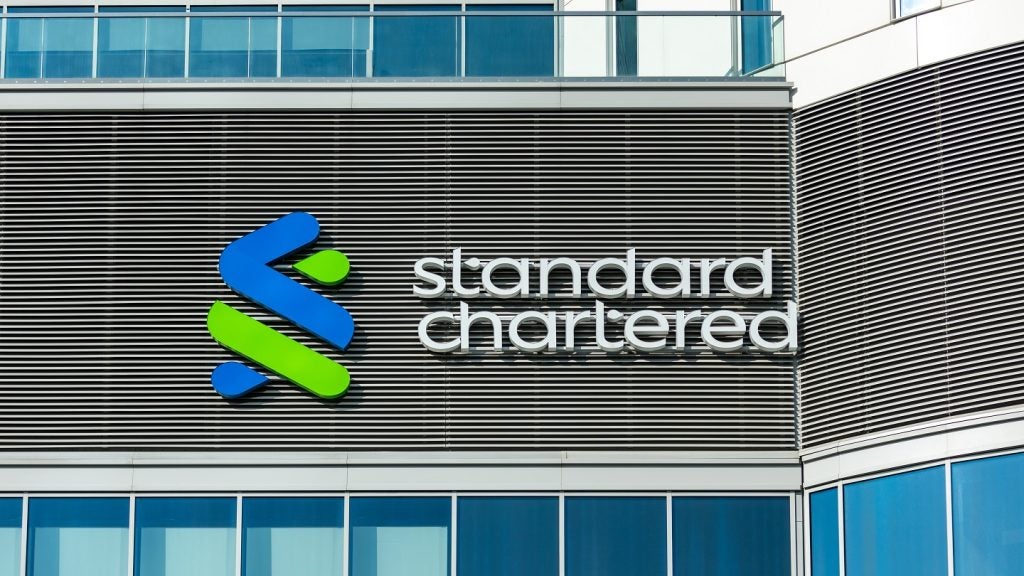The African country of Nigeria has attracted much wealth, both local and foreign, due to its recent expanding private banking industry. Investors are noticing the country’s lucrative offerings, migrating into the country rather than emigrating out. However, the road to recognition has not been easy and the country experienced some bumps along the way.
The economic crisis six years ago took no prisoners. Despite the less detrimental effects Africa endured compared to many developed economies, Nigeria still felt the blow. The stock market in particular endured massive losses in prices in 2009. The real estate sector also took a beating. Demand in real estate plummeted due to the high cost of borrowing for construction. The country’s silver lining, however, was its dependence on oil, which was not adversely affected during the crisis.
For Nigeria’s private banking and wealth management sectors, some might say the crisis was a blessing in disguise. At the time, many wealthy Nigerians were banking abroad with foreign banks. The crisis helped bring funds back into Africa, contributing to the industry’s growth.
Over the last few years, Nigeria has experienced an impressive increase in both the number of HNWIs in the country, as well as HNWI wealth. In 2013, Nigeria was home to 16,686 HNWIs, holding $87bn in wealth. HNWI numbers rose by 4.9% that year. PBI’s sister company WealthInsight expects the volume of HNWIs in Nigeria to grow by 7.4% and HNWI wealth to grow by 27.4% by 2018, reaching 18,481 and $123bn respectively.
First Bank of Nigeria (FirstBank), located in Nigeria’s most populous city of Lagos, is the nation’s largest bank, and has been ahead of the pack in the worlds of private banking and wealth management.
FirstBank caters to nearly 1,300 of the country’s HNWIs. Bernadine Okeke, global head of private banking at FirstBank, attributes the bank’s leading status to the design of its private banking system, which is relatively new to Sub-Saharan Africa.
The bank takes pride in setting itself apart from other Nigerian banks.
"We offer both private banking and wealth management and asset management services which most other banks do not offer.
"Because we have an international reach under our global platform, we can invest in several jurisdictions and keep a 360 degree view of the portfolio. Many of our local competitors focus on personal banking activities and our international competitors only focus on the investment side. We do both," says Okeke.
FirstBank runs around 7-8% of the total HNWI wealth value, by far the largest share of any private bank in the country.
"We believe that we have created opportunities that other banks have not created. That said, we do control the largest piece of this wealth asset in the country now," adds Okeke.
With offices in Dubai, South Africa and London, as well as recently opened offices along the West African coast, FirstBank is expanding its presence with the goal of providing clients with exponential financial prosperity.
Another contributor to the bank’s prominence in the country is that the bank allows clients to invest outside as well as inside the country, so they are not restricted to just the domestic market.
A diversified portfolio
In 2013, Europe accounted for 28.0% of the foreign assets of Nigerian’s HNWIs, followed by North American with 24.3%, Africa with 23.2%, Asian-Pacific with 12.1%, Latin American with 8%, and the Middle East with 3.5%. WealthInsight reports Nigerian HNWIs held 17.2% of their wealth outside their home country in 2013, totalling $15bn. This was below the global average of 20-30%.
Within the country, HNWIs are presently seeing potential in the real estate sector. Since the 2008 crisis, the real estate market has picked up in parts of Nigeria, particularly over the last two years, constituting a significant proportion of Nigerian HNWI wealth.
WealthInsight reports that 25% of HNWI assets were in real estate in 2013. The country has seen more housing stock being developed by many HNWIs for the purpose of generating business revenues.
Although WealthInsight expects real estate holdings to total 24.7% of total Nigerian HNWI assets by 2018, the slight fall from 25% in 2013 does not necessarily indicate a declining performance within the sector.
"I think what appeals to HNWIs is that even if you have the ups and down in real estate, it’s still a tangible asset: the likelihood of it disappearing is next to zero.
"The other thing is that real estate can actually generate revenue in terms of rental properties and rental income," says Okeke.
As for a shift away from real estate in investment portfolios, Okeke does not foresee this happening in the near future. She does, however, expect many of FirstBank’s clients to enter into industries, meaning they will be building businesses, creating active rather than passive investments, and creating employment and business opportunities.
Citi Private Bank, with offices in Nigeria, has witnessed firsthand the triumphs of the Nigerian market and the evolution of the Nigeria HNWIs. The firm’s HNW clients are becoming increasingly diversified in investment asset classes. Previously focused on domestic real estate and fixed income, Citi’s clients are now seeking investment opportunities in public and private equities as well as hedge funds and global real estate.
Additionally, Nigerian HNWIs are expanding their wealth, going beyond the traditional oil and gas and manufacturing industries for which Nigeria is so well known. Gerassimos Spyridakis, region head of Africa, Greece and Israel at Citi, sees the emergence of HNW and UHNW clients from an array of sectors such as IT and telecommunications, banking and financial services, food and beverage, and transportation and logistics.
Age of sophistication
During its current 2014-2018 forecast period, WealthInsight expects banks and institutions to reinforce and expand their operations, and allocate more resources to better understand their client base and provide high-level services.
That said, Nigeria’s private banking clients are adamant about receiving their money’s worth from these upscale services. Clients want to be more involved in terms of the logistics of their investments.
"Our clients are getting much more sophisticated, and they’re demanding a lot more information. They’re demanding information about what’s going on within the country and what’s going on in the international market. They want to know about the economics of their investments," says Okeke.
Clients wish to know the impact of changing their money into currency as opposed to gold or real estate, the interplay between exchange rates and interest rates and how to maximise the volatility of a devaluing currency.
FirstBank’s strategy to maintain success within the private banking and wealth management sectors, as well as the satisfaction of its clients, is simple: "We need to be up and doing much more. We need to be more attuned to those economic issues than we were in the past. And we need to be much more active in advisory – rather than passively managing client portfolios, we need to be actively managing them," says Okeke.
Citi has noticed a respectable number of indigenous Nigerian businesses accessing the international capital market for the first time, undertaking cross-border merger and acquisition activity, according to Spyridakis.
"Given the high degree of correlation between corporate finance activity and wealth creation, we’ve been responsive to the need for diversified services ranging from investment portfolio management, to structured lending, custody and fiduciary services to facilitate multi-generational wealth transfers," he adds.
Nigeria experienced some hiccups on the road to economic growth.
The Nigerian wealth management market displayed rather low merger and acquisition activity in 2013. Many domestic banks took a more conservative approach to the financial crisis, choosing to raise capital through public offerings.
As a result, just two acquisitions took place last year. One was Guaranty Trust Bank’s acquisition of a 70% stake in the Kenya-based Fina Bank, increasing Guaranty’s portfolio by an impressive $285m and expanding its presence outside Nigeria. The second was Investment One Financial Services’ acquisition of a 99.99% stake in Royal Trust Pension Fund.
That being said, Nigeria’s recent jump to the top of the economic leader board, earning the title of Africa’s largest economy, foreshadows a fiscally promising future for the country.
Financial advisory services that were once not prevalent are now being sought after. Nigerians are becoming wealthier, and demand for goods and services are consequently increasing.
According to WealthInsight, the total number of Nigerian HNWIs is forecast to grow by 7.4% to reach 18,481 in 2018. HNWI is expected to grow by 27.4% to reach $123bn by 2018.
"With a rapidly rising middle class, changes in demographics, increased urbanisation, and continued economic expansion, Nigeria is set to lead the sub-continent as one of the fastest growing global economies," says Citi’s Spyridakis.
The upper end of the country’s market is experiencing significant growth as the economy continues to expand.
"Very wealthy Nigerians believe they should now invest at home, therefore the wealth is returning to the shores of Nigeria, creating new wealth and opportunities," says Okeke.
Given Nigeria’s present state, Spyridakis has high hopes for the nation’s future. While he maintains a positive outlook, he does, however, acknowledge economic changes that could ensue as Nigeria gears up for the next presidential election.
The upcoming political events could potentially lead to market volatility, according to Spyridakis.
"We anticipate monetary and fiscal policy to be tested on the back of the recent events with the Central Bank and also the presidential elections earmarked for 2015. However, we believe Nigeria has demonstrated the resilience to withstand temporary changes and disruptions," he says.
For the time being, the future looks bright for the once-underdog nation.







